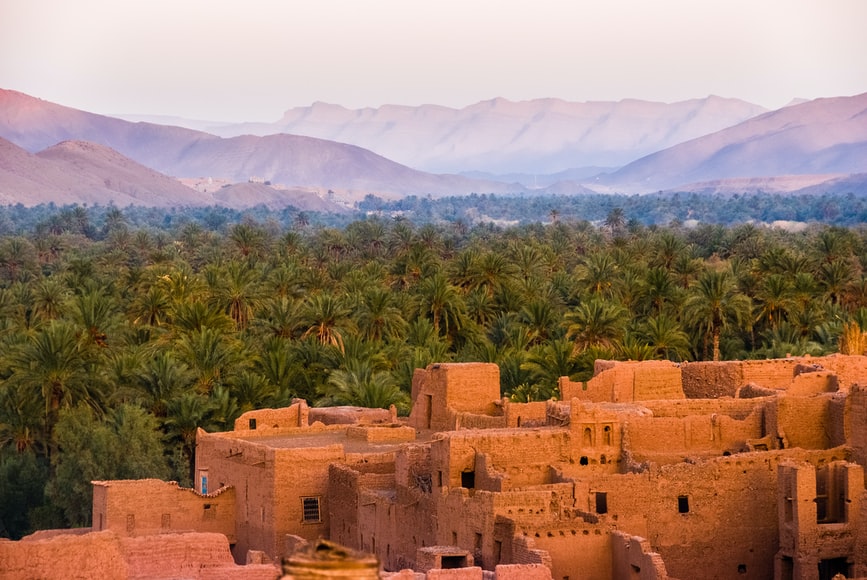Why we love Morocco
Morocco is all texture – terracotta walls, patterned tiles, the scent of orange blossom and wood smoke in the air. Mornings mean mint tea and the sound of the city waking; afternoons bring mountain roads, desert light and sea spray on the coast. From Marrakech to the Atlas, the Agafay to Essaouira, it’s a place that reveals itself layer by layer. This guide shares everything you need to know before you go.
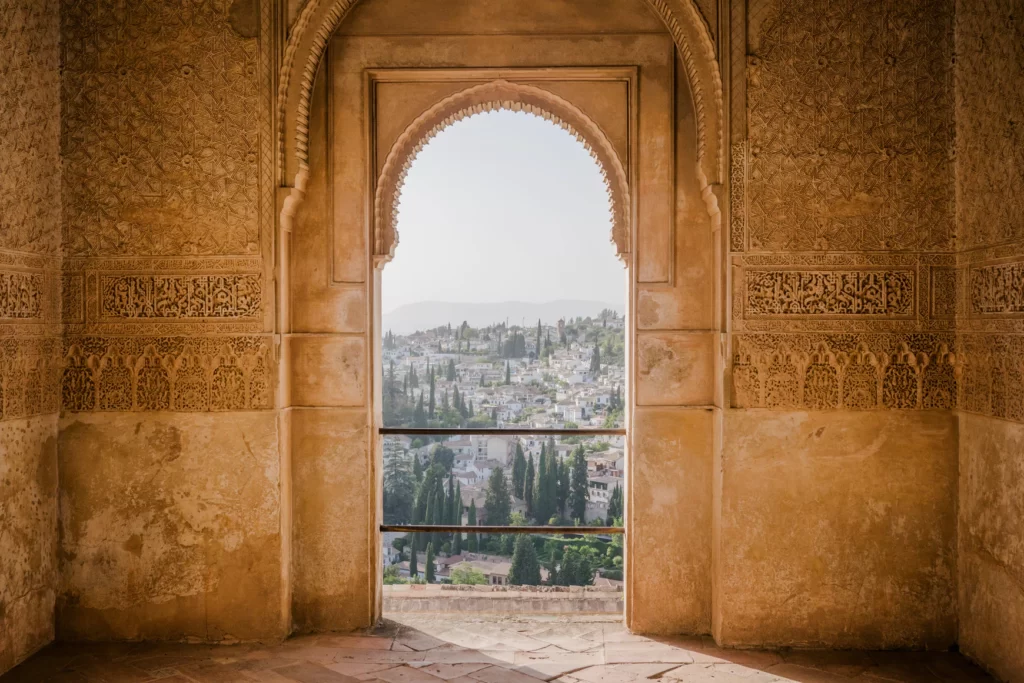
Entry requirements
British and American nationals do not need a visa for tourist stays of up to three months.
To travel, you will need:
– A passport valid for the duration of your stay in Morocco (some airlines recommend at least six months’ validity).
– At least one blank page for entry and exit stamps.
If you are travelling from a different country, please check your government’s advice for the latest entry requirements.
Health and safety
We are not certified to give medical advice, so we recommend speaking to your doctor or a travel health clinic about your vaccination history and any additional vaccinations you may need before travelling to Morocco. We also suggest checking the TravelHealthPro website for the latest advice on recommended vaccines and guidance on bringing medication into the country.
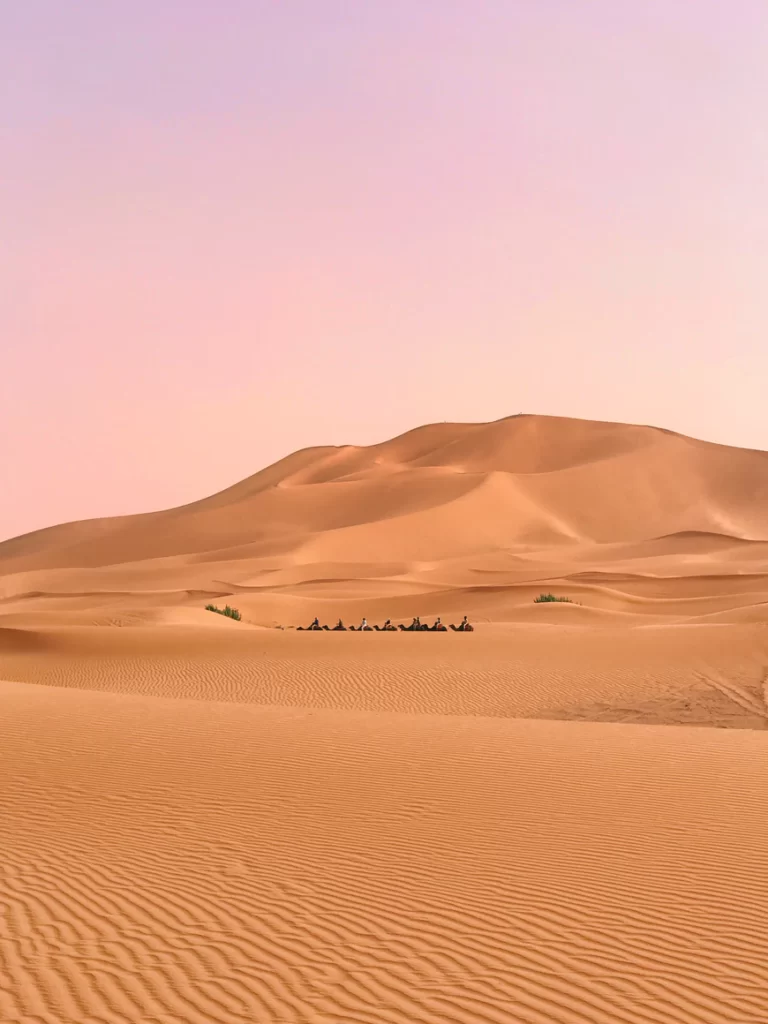
Getting around
Transfers: We can arrange your airport transfers for you – just share your flight number or train details, and we will plan the route and confirm the cost.
Hire car: Morocco’s landscapes are made for road trips. If you’d like to hire a car, our Operations team can recommend reliable car hire companies and advise on where to collect and drop off your vehicle.
Climate and packing tips
We strongly recommend that you carry overnight essentials and any medication in your hand luggage, particularly if connecting to an onward destination, in the event of lost luggage or delays.
Morocco’s climate varies by region:
Coastal areas (Casablanca, Essaouira): Mild and temperate all year round with pleasant sea breezes.
Pack: Light cotton clothing, a cardigan or light jumper for cooler evenings, sunhat, sunglasses and suncream.
Inland cities (Marrakech, Fez): Summers can be very hot, while winters are cooler, especially in the evenings. Rainfall is minimal.
Pack: Breathable cotton clothes, a shawl or scarf to cover shoulders when visiting religious areas, a jumper or jacket for winter evenings and a cover-up for wandering outside your riad or resort.
Atlas Mountains and Sahara Desert: Hot days and cool to cold nights, with the Atlas often dipping below freezing in winter.
Pack: Layers including a warm jumper or fleece, a windproof jacket for desert nights, sturdy walking shoes, cotton clothing for daytime heat and a hat and scarf for sun and sand protection.
Swimwear is fine at your riad, hotel or resort, but we recommend modest cover-ups outside these areas.
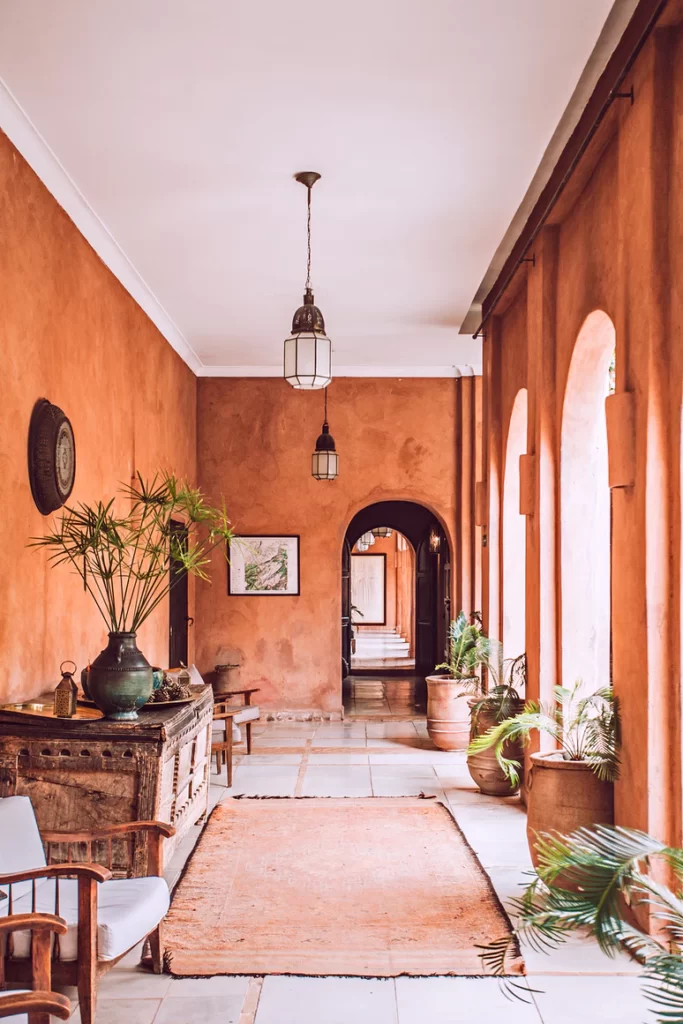
Laws and customs
Although Moroccans are extremely welcoming and accepting of other cultures, it is still a conservative and very religious country. Here are our top tips for understanding Morocco’s laws and customs – please also check the official guidance before you travel.
– Dress modestly, covering shoulders and knees, particularly in religious or rural areas.
– Non-Muslims cannot enter mosques.
– Always carry identification such as a photocopy of your passport, especially on road trips.
– Alcohol is available in some hotels and in larger cities but is restricted in rural towns.
Money matters
The official currency is the Moroccan Dirham (MAD). You can easily withdraw cash from ATMs and exchange money at banks and exchange offices in cities, though this is less convenient in rural areas. Always carry some small bills and coins for taxis, tips and small purchases.
Debit and credit cards are widely accepted in hotels, restaurants and shops in larger cities, but you may need cash in souks, markets and remote locations.
Tipping
Tipping is common practice in Morocco and is always appreciated. In restaurants and cafés, it’s customary to leave around ten per cent of the bill for good service. For drivers and guides, tips are usually given in cash, ideally in Moroccan Dirhams.
As a guideline:
– Half-day guided tour: around 50–75 MAD per traveller.
– Full-day guided tour: around 100–150 MAD per traveller.
– Drivers: 20–50 MAD for shorter transfers, more for longer journeys.
– Hotel porters: 10–20 MAD per bag.
Cards are widely accepted in hotels and most restaurants, but keep small notes handy for markets, tipping, and smaller services. A small cash tip, even if modest, is a gesture that goes a long way in Morocco’s warm service culture.
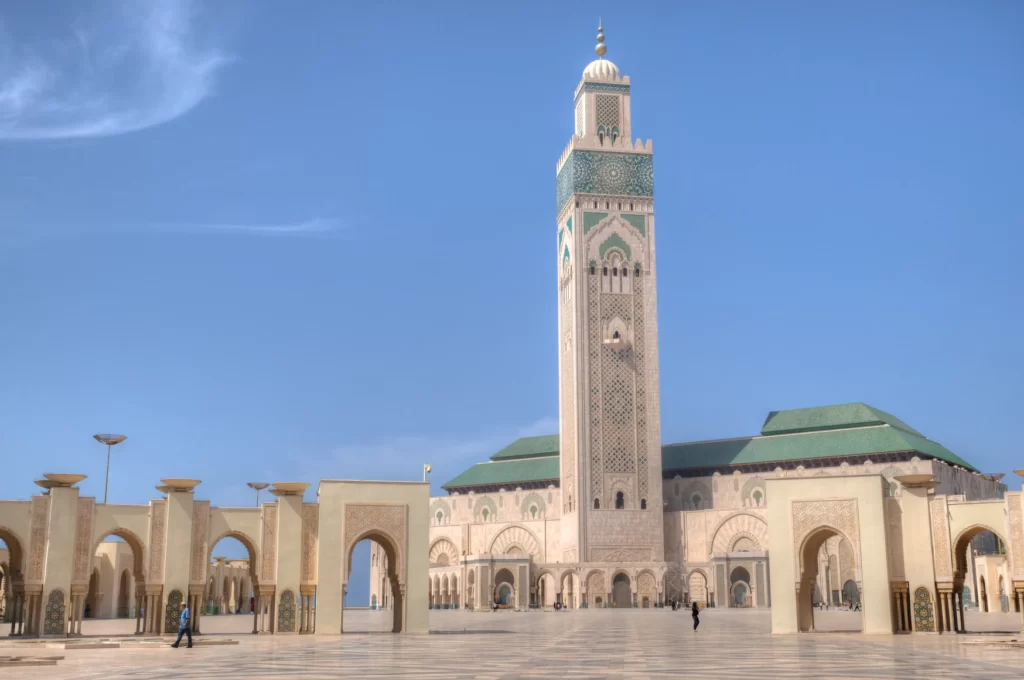
Practicalities
Plug type: Morocco uses plug types C and E, both with two round pins. Type E sockets also have a hole for the socket’s earth pin.
Flights and time zone: Direct flights from London to Marrakech take about three hours forty minutes. Morocco operates on GMT+1 year-round.
Language: The official language of Morocco is Moroccan Arabic (Darija), but French is widely spoken in cities, restaurants, hotels and shops. English is becoming more common in tourist areas, but its always good to know a few useful phrases.
Hello – Salam
Thank you – Shukran
Please – Min fadlak (to a man) / Min fadlik (to a woman)
Yes / No – Naam / La
Excuse me / Sorry – Smah li
How much is this? – Bshhal hada?
I need help – Ana bghit msaada
Where is the bathroom? – Fin kayn l-hammam?
Goodbye – Bslama
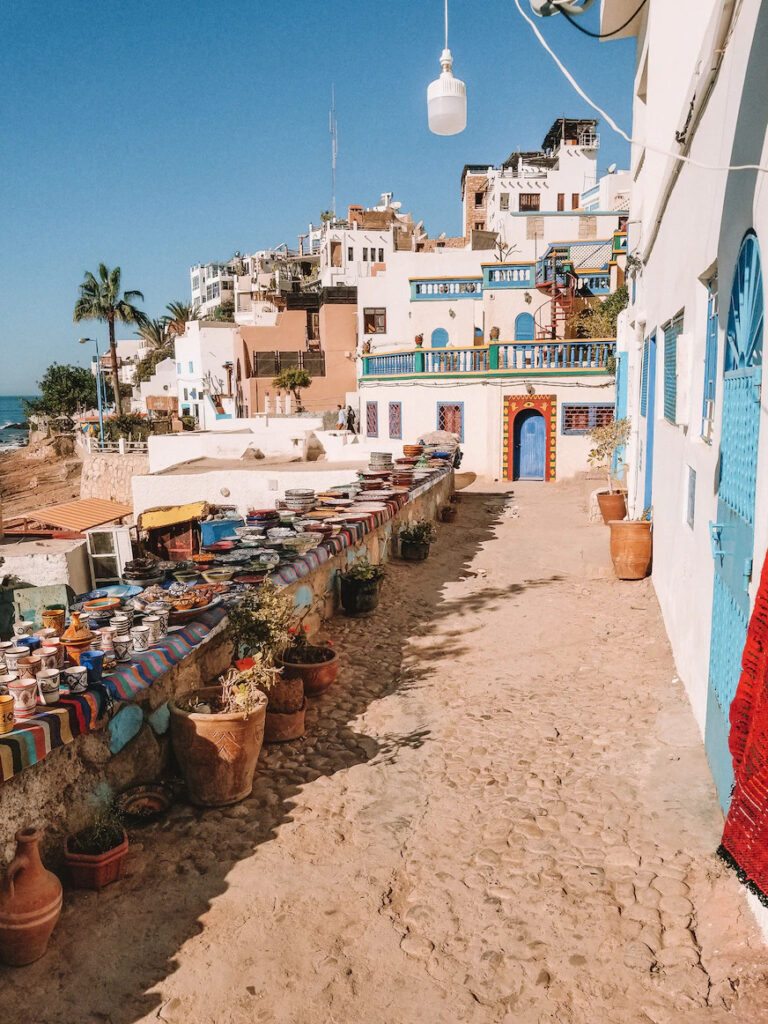
Food and drink
Moroccan cuisine is an experience in itself – a combination of Berber, Arab, French, Andalusian and Jewish influences. Big on spices and slow-cooked dishes, these are a few highlights to try during your visit:
Tagine: Morocco’s signature dish, a slow-cooked stew of meat, chicken, or vegetables simmered with dried fruits, olives, and fragrant spices.
Pastilla (B’stilla): A delicate pastry pie, often filled with pigeon or chicken, almonds, and spices, topped with cinnamon and powdered sugar.
Harira: A hearty soup of lentils, chickpeas, tomatoes, and spices, traditionally eaten to break the fast during Ramadan.
Zaalouk: A smoky aubergine and tomato salad, served as a starter or side with bread.
Mint tea: Known as ‘Berber whisky’, this sweet, minty green tea is the drink of hospitality and is served everywhere, often with a dramatic high pour.
Morocco is vegetarian-friendly, with plenty of vegetable tagines, salads, and fresh flatbreads. Alcohol is widely available in larger cities and tourist resorts but less common in rural areas.
Keep connected
Local SIM cards are affordable and easy to buy at airports or in major cities. Maroc Telecom, Orange and Inwi are the main providers, offering good coverage in most areas. Alternatively, an e-SIM purchased in advance is a convenient option for staying connected from the moment you land.
